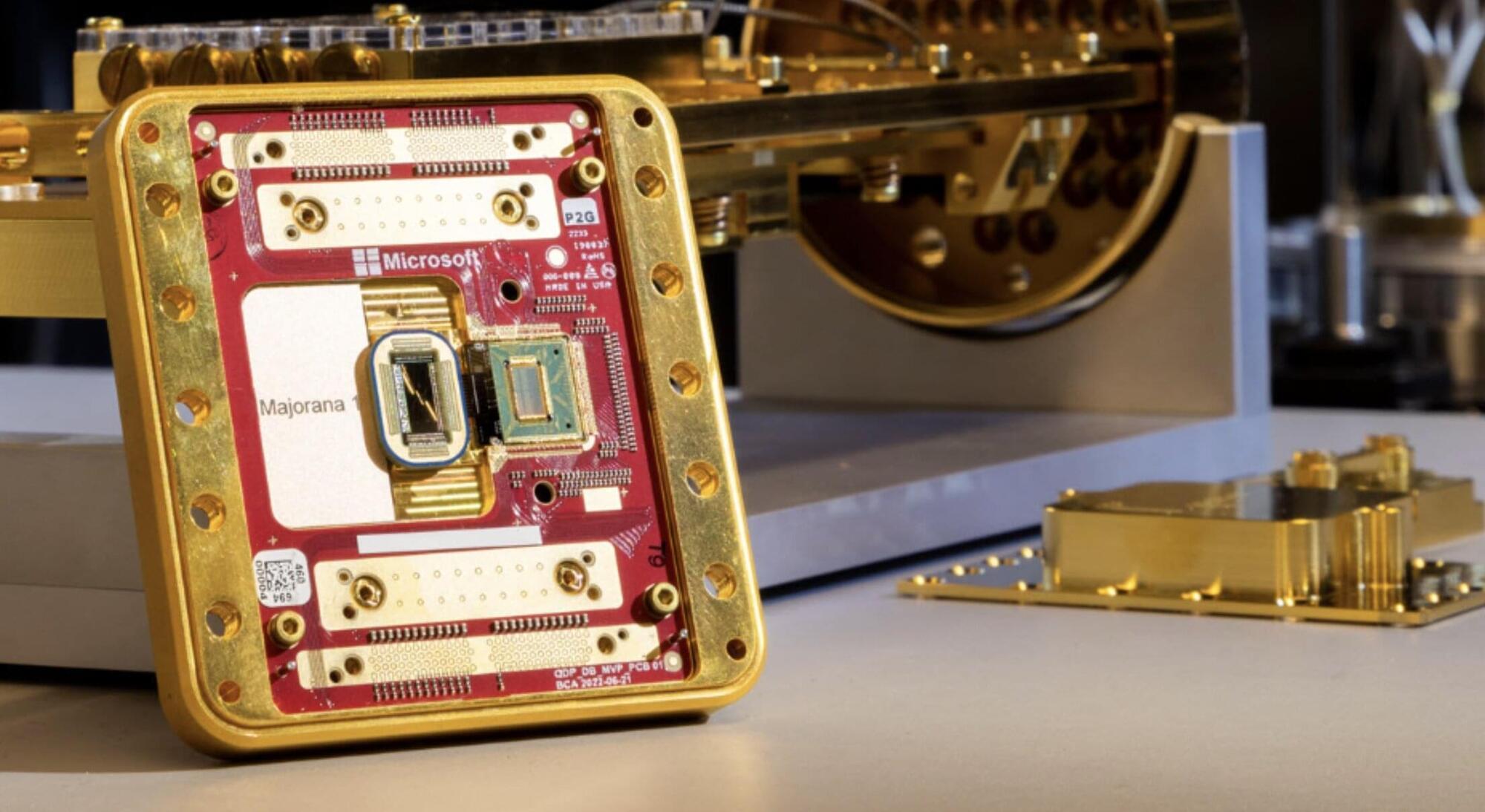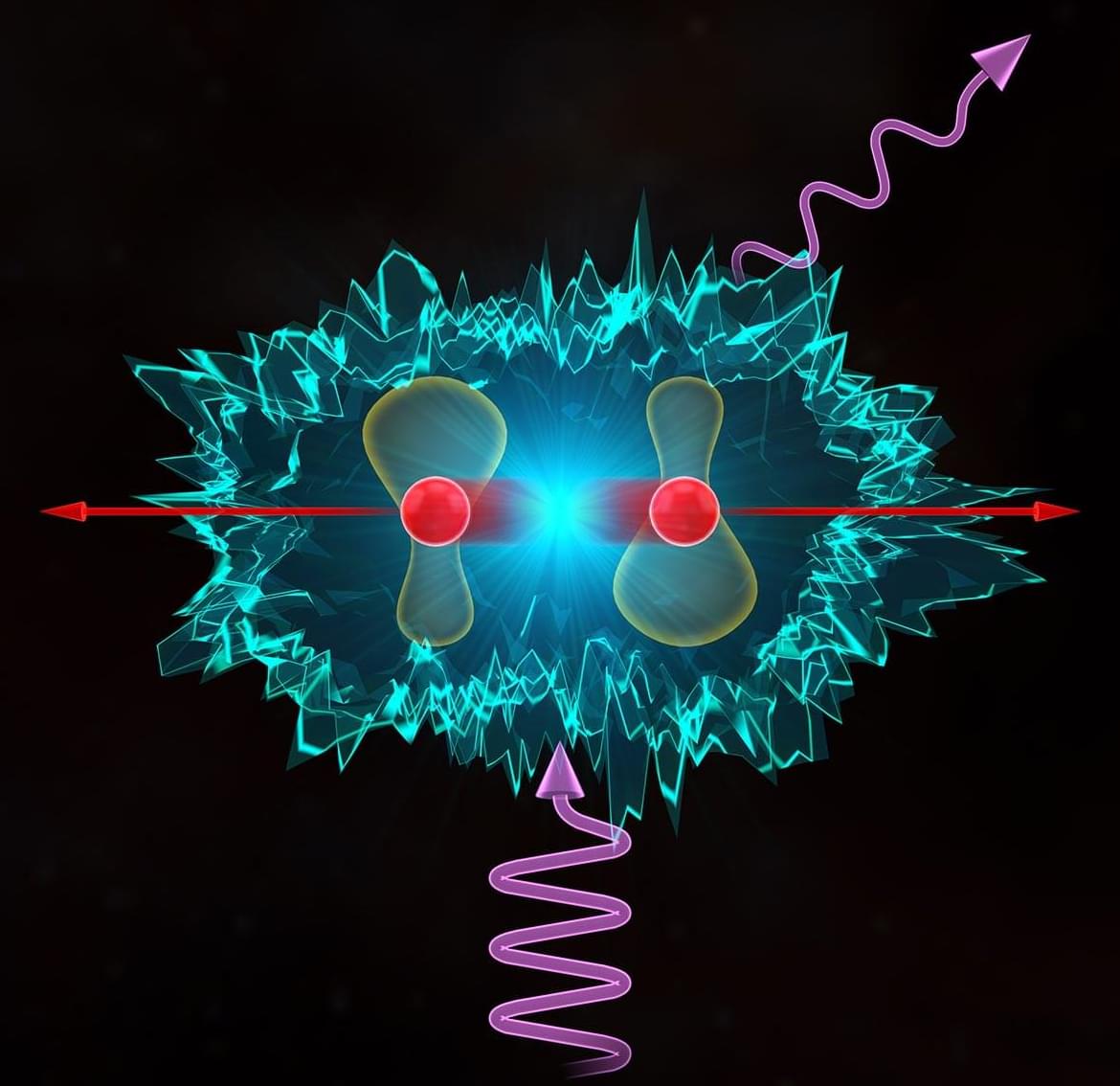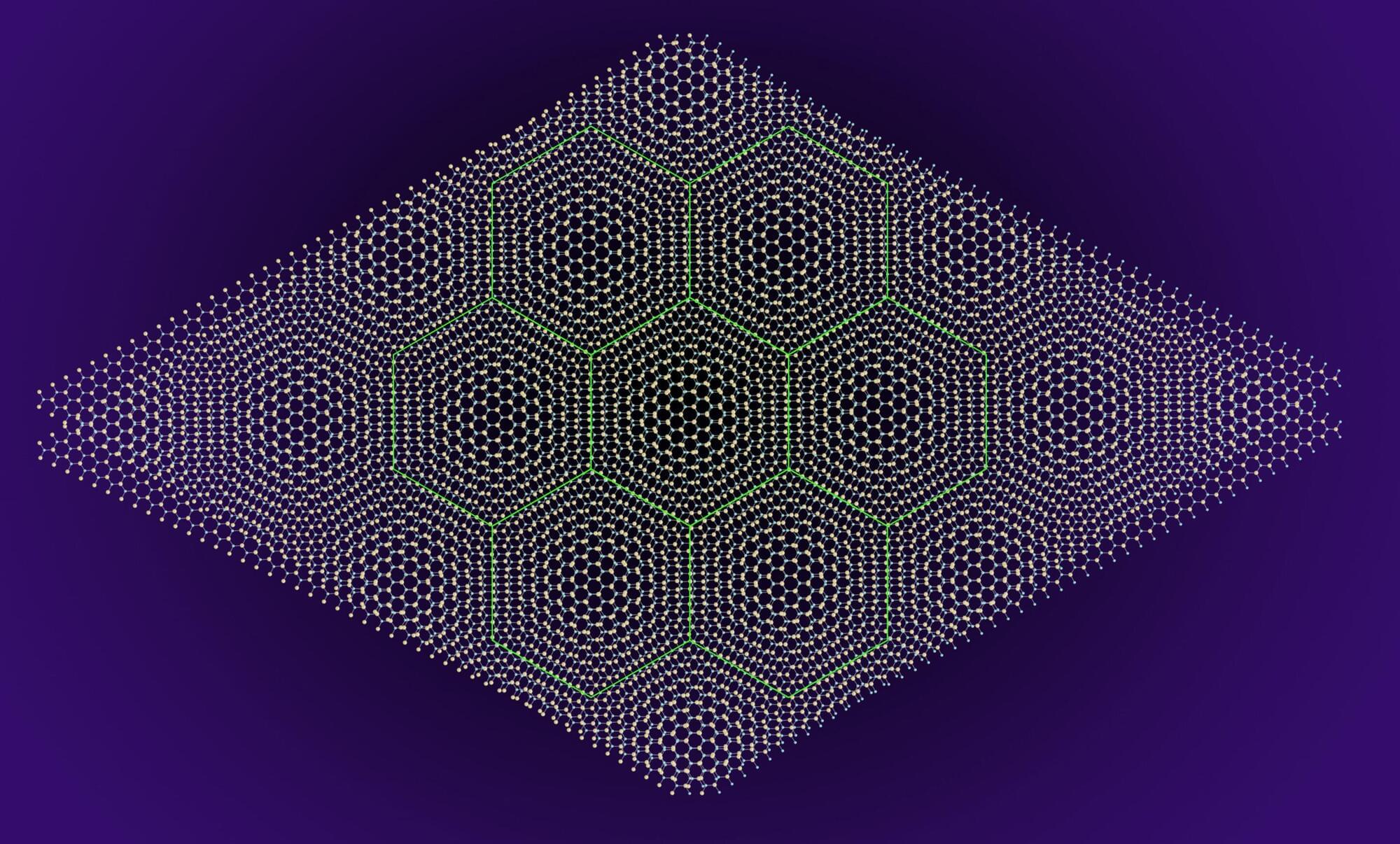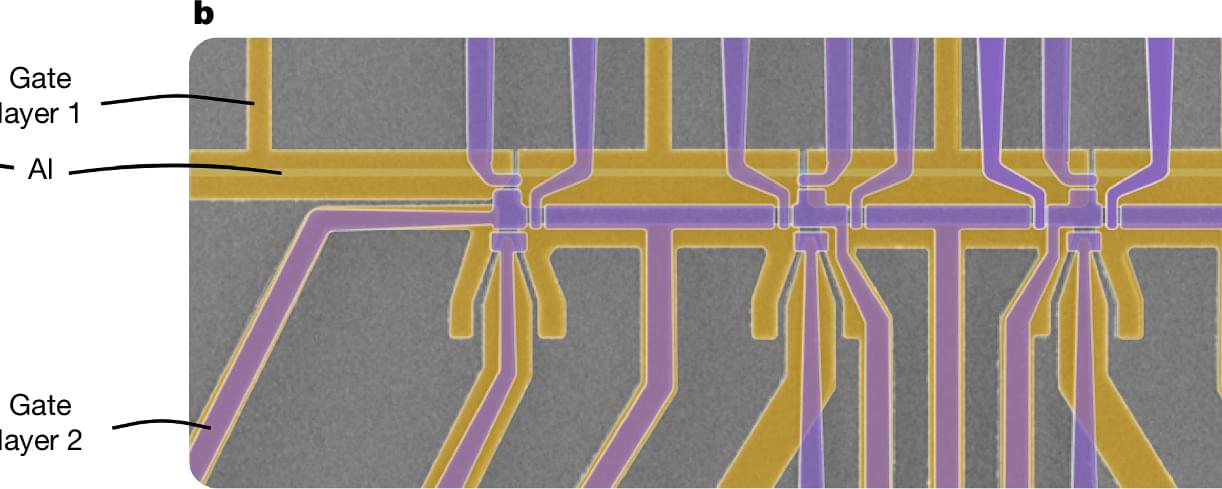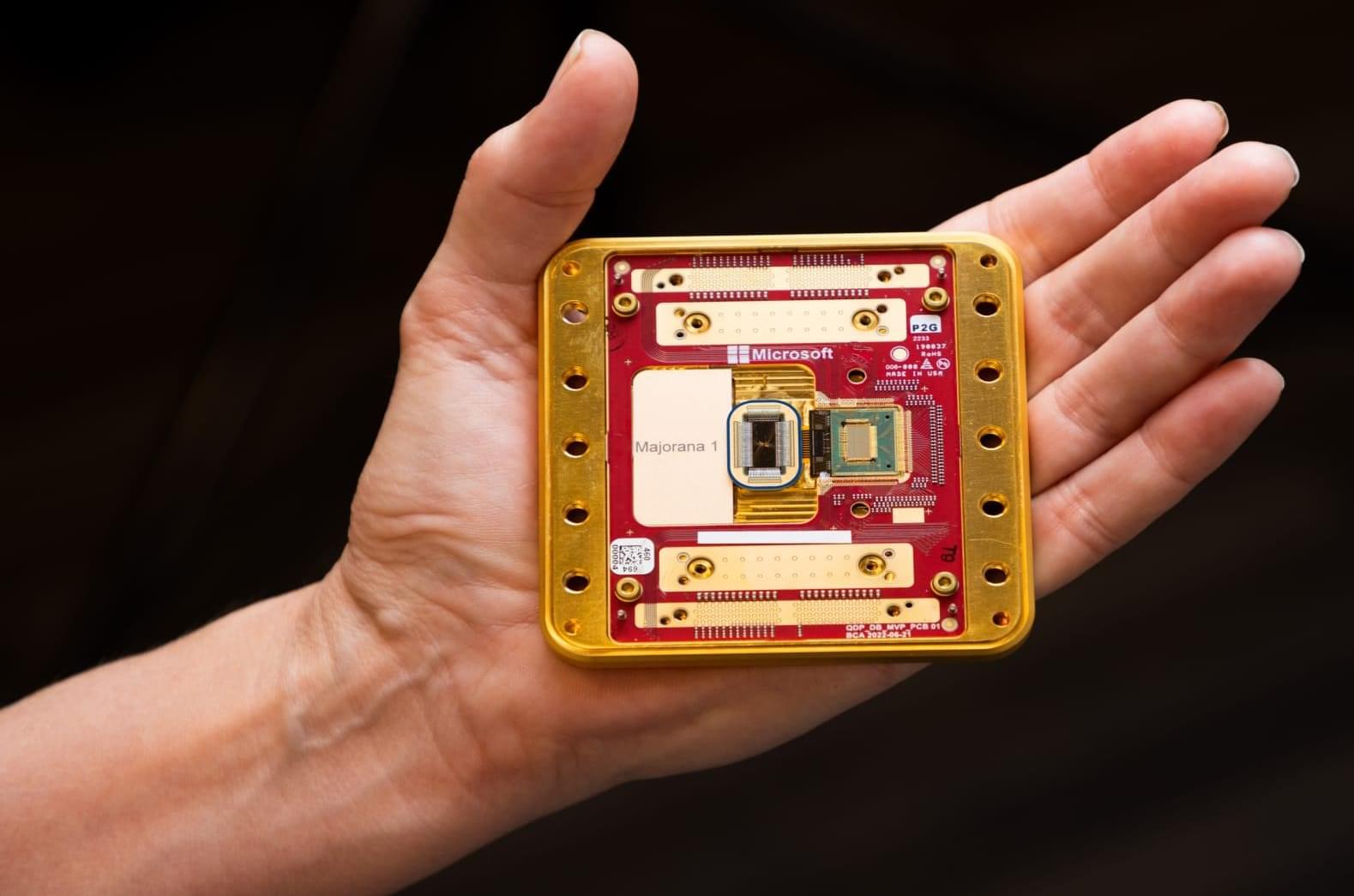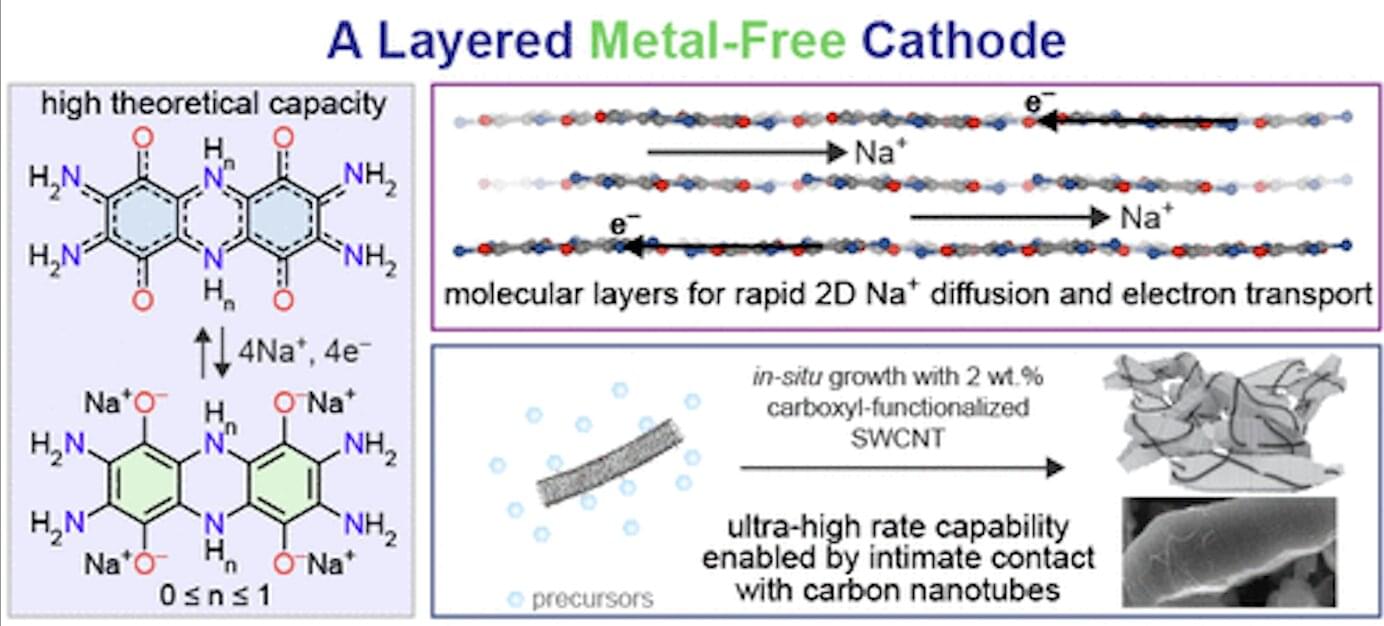In a leap forward for quantum computing, a Microsoft team led by UC Santa Barbara physicists on Wednesday unveiled an eight-qubit topological quantum processor, the first of its kind. The chip, built as a proof-of-concept for the scientists’ design, opens the door to the development of the long-awaited topological quantum computer.
“We’ve got a bunch of stuff that we’ve been keeping under wraps that we’re dropping all at once now,” said Microsoft Station Q Director Chetan Nayak, a professor of physics at UCSB and a Technical Fellow for Quantum Hardware at Microsoft. The chip was revealed at Station Q’s annual conference in Santa Barbara, and accompanies a paper published in the journal Nature, authored by Station Q, their Microsoft teammates and a host of collaborators that presents the research team’s measurements of these new qubits.
“We have created a new state of matter called a topological superconductor,” Nayak explained. This phase of matter hosts exotic boundaries called Majorana zero modes (MZM) that are useful for quantum computing, he explained. Results of rigorous simulation and testing of their heterostructure devices are consistent with the observation of such states. “It shows that we can do it, do it fast and do it accurately,” he said.
